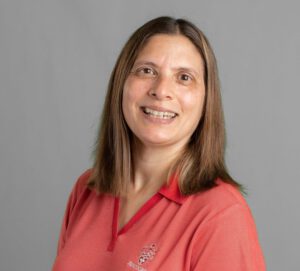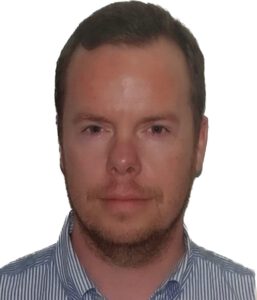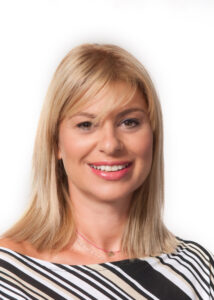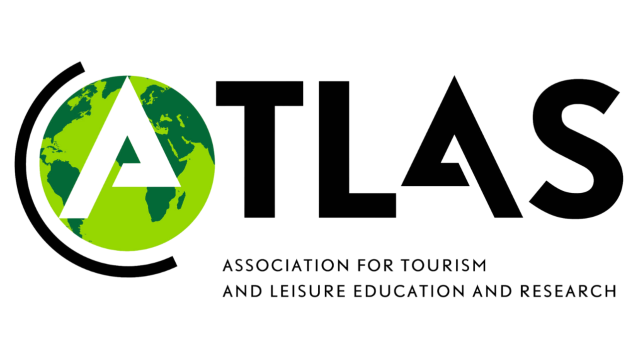ATLAS Middle East Webinar 2024
The Afterlife of Mega Events: Measuring Impacts and Outcomes in the Middle East
ONLINE
April 22, 2024
Introduction
The Legacy of the 2022 FIFA World Cup in Qatar – Reflections
The City after Expo in Dubai. Lessons from Disney’s Plans Progress City, Epcot, and Involvement in the 1964-65 World’s Fair in New York City
Expo 2020 Dubai: Slow recovery of a popular heritage and shopping destination in Muscat, The Sultanate of Oman
Sustainable Tourism Scenarios at Davos and COP28
Moderator
Contact and Registration
Introduction
The Association for Tourism and Leisure Education (ATLAS) Middle East is organizing a webinar on The Afterlife of Mega Events. Measuring Impacts and Outcomes in the Middle East. This webinar provides an opportunity to gain insights into the afterlife of mega events that are being held in the Middle East, such as EXPO 2020, COP 28, and FIFA World Cup 2022. Presentations from researchers in the region will focus on these back-to-back mega-international events that make the Gulf Cooperation Council (GCC) emerge stronger on the global tourism map and plan a positive legacy from the mega-event projects.
ATLAS Middle East Webinar 2024
The Afterlife of Mega Events: Measuring Impacts and Outcomes in the Middle East
ONLINE
Monday April 22, 2024
Dubai/GST: 17:30 – 19:00 PM
CEST: 15.30 pm – 17.00 PM
Participation is free for ATLAS members and non-members.
Registration for the webinar is required.
The participants can watch it on YouTube LIVESTREAM.
The Legacy of the 2022 FIFA World Cup in Qatar – Reflections
In 2010, amidst much controversy, Qatar became the first country in the Middle East to be awarded the right to host the 2022 FIFA World Cup. In the years leading up to this mega-event, the country faced increasing criticism regarding human rights and various social issues. Concerns about the small Gulf state’s ability to host such a large-scale, global event were also raised. Despite the trepidation, Qatar seemingly hosted a successful mega-event that exceeded many expectations. Now that the “circus” has left town, attention is being turned to the legacy. With escalating public scrutiny and contestation of the costs and benefits of sporting events, the concept of legacy has received increasing attention from various stakeholders. This has been no different for Qatar, with legacy being at the forefront of the FIFA World Cup 2022 and aligned with Qatar’s 2030 National vision. Reflections on the legacy of Qatar 2022 will be presented.
Kamilla Swart

Kamilla Swart, Ph.D., is an Associate Professor and Director of the Masters of Science in Sport and Entertainment program at the College of Science and Engineering, Hamad Bin Khalifa University, Qatar Foundation. She is also a Senior Research Associate at the School of Tourism and Hospitality at the University of Johannesburg, South Africa. Kamilla’s research interests include sport and event tourism, with a specific focus on mega-events, impacts, sustainability, legacy, and inclusion in sport. Her work has focused on contributing to sport, tourism, and event knowledge in the developing context and the global South. Kamilla was instrumental in developing the 2010 FIFA World Cup Research Agenda and has worked closely with the Qatar Foundation 2022 FIFA World Cup Master Program and the Supreme Committee for Delivery and Legacy. She has been recently appointed to the Advisory Committee (research pillar) of the UNESCO Chair on Governance & Social Responsibility in Sport.
The City after Expo in Dubai. Lessons from Disney’s Plans Progress City, Epcot, and Involvement in the 1964-65 World’s Fair in New York City
Disney Imagineering built four of the most popular attractions for the 1964-1965 World’s Fair in New York. Today, the site in Flushing Meadows Park in Queens harbors a faint reminder of the fair with Walt Disney bringing the attractions home to Disneyland after the event’s conclusion. However, the experience inspired Disney to think bigger for his then under development Florida Project to include a Progress City based on the fair’s showcase of modernism and futurism. Walt Disney’s death in December 1966 effectively ended the promise of Progress City, though its spirit eventually became the Epcot theme park that opened at Walt Disney World in 1982. This paper explores Walt Disney’s plans for Progress City based on the World’s Fair and the obstacles that led the Disney corporation to build a World’s Fair-inspired theme park instead. Lessons from the Disney experience are applied and discussed regarding the potential future of Dubai’s Expo City.
William McCarthy
William McCarthy, Ph. D., is an assistant professor in the College of Communication and Media Sciences at Zayed University, United Arab Emirates. His articles have been published in journals including Tourism Geographies, Journal of Leisure Research, Quarterly Review of Film and Video, and Social Semiotics. His research interests include theme parks, Disney, digital culture, place attachment, online social platforms, and semiotics.
Expo 2020 Dubai: Slow recovery of a popular heritage and shopping destination in Muscat, The Sultanate of Oman
As the world started to recover from the Corona pandemic and reopened for international tourism, small emerging destinations, and their communities on the Arabian Peninsula faced various challenges. Until the outbreak of the pandemic, Oman and its neighbors in the GCC region were expanding their maritime and aviation infrastructure at a fast pace. Following a global standstill in tourism, cruise operations and flights from European destinations resumed slowly. Safety protocols and entry restrictions were eased for many countries with the start of the Expo 2020. From October 2021, mega-cruise liners were travelling with a lower occupancy around the Arabian Peninsula. Tourism activities increased in a popular tourist destination in Muscat, Souq Muttrah. The business community readjusted the place, selling behaviors, and products for tourists and locals. However, their hopes to accommodate crowds of tourists who spend time and money within the space were not fulfilled. Some businesses were innovative; others closed down. My findings are based on extensive field work carried out in Oman before, during, and after the pandemic, with the start of the Expo 2020 in autumn 2021. From October 2021 to March 2022, the Expo 2020 was held in Dubai while Qatar was preparing for the FIFA World Cup 2022. Both events were expected to have a spill-over effect on UAE’s neighboring country, The Sultanate of Oman.
Manuela Gutberlet

Manuela Gutberlet, Ph.D., Senior Researcher and Lecturer, Breda University of Applied Sciences, the Netherlands, and Research Associate, University of Johannesburg, Department of Tourism and Hospitality, South Africa. She has recently published a book on Overtourism and Cruise tourism in Emerging Destinations on the Arabian Peninsula, published by Routledge. Her research interests include community-based tourism and the impacts of acceleration and globalization on cultures in destinations and local people. She studied Business and Arabic in Germany and gained her PhD in Cultural Geography from RWTH Aachen University, Germany. She has gained over 20 years of study and work experience in the Middle East, where she worked as a journalist, tour guide, researcher, and a PR manager.
Sustainable Tourism Scenarios at Davos and COP28
Sustainability is a major concern to the travel and tourism sectors and can be envisaged from several angles. Both the World Economic Forum, during its 2024 Annual Meeting in Davos, and the COP28 that took place in Dubai in late 2023 are large events during which sustainable tourism was discussed, directly or not. Outcomes can be looked at from a MENA perspective, given their regional implications.
Adriaan De Man

Adriaan De Man, Ph.D., is Professor and Chair of the Department of Tourism and Heritage at the United Arab Emirates University. He has worked mainly on archaeology, museums, heritage management, and cultural tourism.
Moderator
Filareti Kotsi

Dr. Filareti Kotsi is a professor at the College of Communication and Media Sciences at the Dubai campus of Zayed University in the United Arab Emirates. She teaches in the undergraduate and graduate programs of tourism and cultural communications. Her research on destination image has been published in Tourism Management, Journal of Travel and Tourism Marketing, Journal of Destination Marketing and Management, and Current Issues in Tourism. She holds a doctorate from the Ecole Normale Supérieure (France). Dr. Filareti is the Middle East Coordinator for the Association for Tourism and Leisure Education (ATLAS).
Registration
- Contact
- Please contact: admin@atlas-euro.org
- Registration
- You can register for the Webinar HERE
